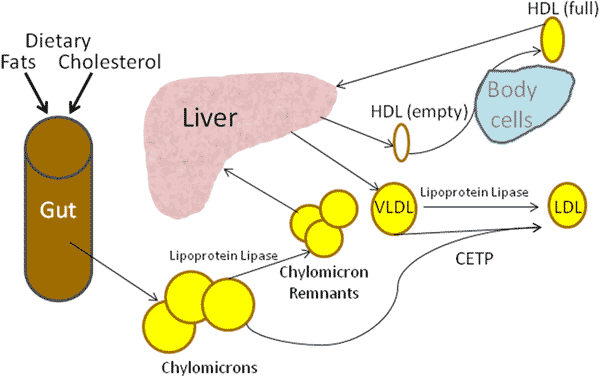Cholesterol metabolism in immune cells linked to HIV progression
Lower levels of cholesterol in certain immune cells - a result of enhanced cholesterol metabolism within those cells - may help explain why some HIV-infected people are able to naturally control disease progression, according to research that will be presented in a poster at the 8th International AIDS Society Conference on HIV Pathogenesis, Treatment and Prevention (IAS 2015) in Vancouver, Canada, and the pre-conference 2015 Towards an HIV Cure Symposium. The findings provide a basis for potential development of new approaches to control HIV infection by regulating cellular cholesterol metabolism.
Immune cells known as antigen-presenting cells (APCs) can take up HIV particles and deliver intact, infectious virus to its primary target - T cells -through a replication-independent process known as trans infection. Scientists funded by the National Institute of Allergy and Infectious Diseases, part of the National Institutes of Health, found that APCs from nonprogressors - HIV-infected people whose disease does not progress for many years even without antiretroviral therapy - do not effectively trans infect T cells. A closer look revealed that this defect in trans infection is likely due to enhanced cholesterol metabolism within the nonprogressors’ APCs, which appears to be an inherited trait.
These observations came from analysis of data and samples provided by participants in the NIH-supported Multicenter AIDS Cohort Study (MACS), a long-term study investigating the natural history of untreated and treated HIV/AIDS in men who have sex with men.
To identify genetic factors linked to defective trans infection, Giovanna Rappocciolo, Ph.D., of the University of Pittsburgh and colleagues searched for patterns in gene expression, or the degree to which specific genes are turned on or off, in APCs from eight HIV nonprogressors and eight progressors enrolled in MACS. Compared to APCs from progressors, cells from nonprogressors expressed higher levels of several cholesterol-related genes associated with defective trans infection. These results improve understanding of how nonprogressors control HIV without drug therapy and potentially may contribute to new approaches to manage HIV infection.
###
 ABSTRACT: G Rappocciolo et al. Profound alterations in cholesterol metabolism restrict HIV-1 trans infection of CD4 T cells in nonprogressors. Program number MOPEA013, Track A.
ABSTRACT: G Rappocciolo et al. Profound alterations in cholesterol metabolism restrict HIV-1 trans infection of CD4 T cells in nonprogressors. Program number MOPEA013, Track A.
WHO: NIAID Director Anthony S. Fauci, M.D., is available for comment.
CONTACT: To schedule interviews, please contact Hillary Hoffman, (301) 402-1663, .(JavaScript must be enabled to view this email address).
NIAID conducts and supports research - at NIH, throughout the United States, and worldwide - to study the causes of infectious and immune-mediated diseases, and to develop better means of preventing, diagnosing and treating these illnesses. News releases, fact sheets and other NIAID-related materials are available on the NIAID website.
About the National Institutes of Health (NIH): NIH, the nation’s medical research agency, includes 27 Institutes and Centers and is a component of the U.S. Department of Health and Human Services. NIH is the primary federal agency conducting and supporting basic, clinical, and translational medical research, and is investigating the causes, treatments, and cures for both common and rare diseases.
###
Hillary Hoffman
.(JavaScript must be enabled to view this email address)
301-402-1663